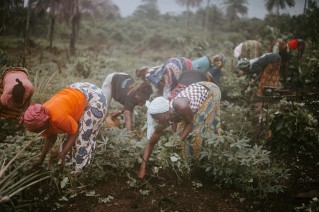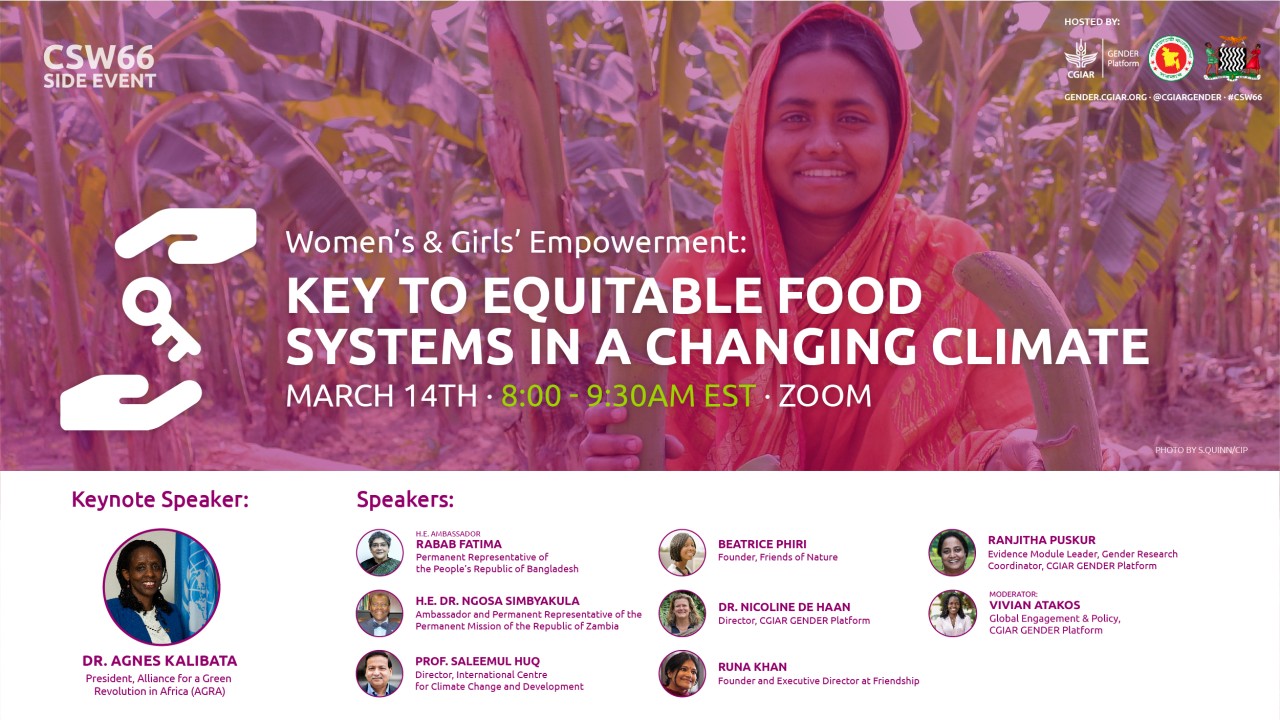ECOSOC at 80: Renewing Multilateralism in an Age of Global Uncertainty
On 23 January, the United Nations Economic and Social Council (ECOSOC) convened a commemorative session…
 Today is International Women’s Day when women worldwide are celebrated yet many women continue to face gender inequality especially in the agricultural sector. According to the FAO, 80% of the farmland in sub-Saharan Africa and Asia is managed by small-holder farmers and about 2.5 billion people in poor countries are employed within the agricultural sector. Most of these are women. Women make up 43% of the agricultural workforce in the Global South and an estimated 66% of livestock keepers yet many of them do not have land ownership right nor access to resources. This is a challenge which threatens global food security and the sustainability of food systems especially in rural areas where more people suffer from hunger, malnutrition, and poverty.
Today is International Women’s Day when women worldwide are celebrated yet many women continue to face gender inequality especially in the agricultural sector. According to the FAO, 80% of the farmland in sub-Saharan Africa and Asia is managed by small-holder farmers and about 2.5 billion people in poor countries are employed within the agricultural sector. Most of these are women. Women make up 43% of the agricultural workforce in the Global South and an estimated 66% of livestock keepers yet many of them do not have land ownership right nor access to resources. This is a challenge which threatens global food security and the sustainability of food systems especially in rural areas where more people suffer from hunger, malnutrition, and poverty.
Climate change also exacerbates the working conditions of these women. Food systems in many developing countries, mapped as climate change hotspots, are dominated by women with few resources and insufficient coping mechanisms, leaving them extremely vulnerable. Women are often stereotyped as victims of climate change effects but in most cases the gender inequalities which are at the heart of their vulnerability to climate shocks go unreported. As a woman in agriculture myself, I find this very unfortunate. It’s high time we break the bias against women in agriculture.
We must all do our part to achieve gender equality in climate-resilient agriculture. It is true that everyone’s adaptive capacity needs to be developed but particular attention must be given to women. There are four key dimensions by which we can address this challenge, namely:
Emerging ag inc is supporting the CGIAR GENDER Platform to give women farmers a voice and opportunities to develop climate-smart agricultural innovations, shed some light on the relationship between climate change and gender equality, and create an environment for networking and partnerships to promote the agenda of GENDER. We support the empowerment of women and girls for sustainable development especially in agriculture. We invite all stakeholders such as policy makers, development practitioners, funders, gender specialists and leaders in the work of promoting gender equality to join us achieve climate-resilient, sustainable, productive food systems for all. Register for the sixty-sixth session of the Commission on the Status of Women (CSW) side event Women’s and girls’ empowerment: Key to equitable food systems in a changing climate on March 14 via Zoom.

Investing in women’s agriculture can impact productivity and increase food security. Break the bias against women in agriculture today. Happy International Women’s Day. Cheers to all women in agriculture and those who support us!